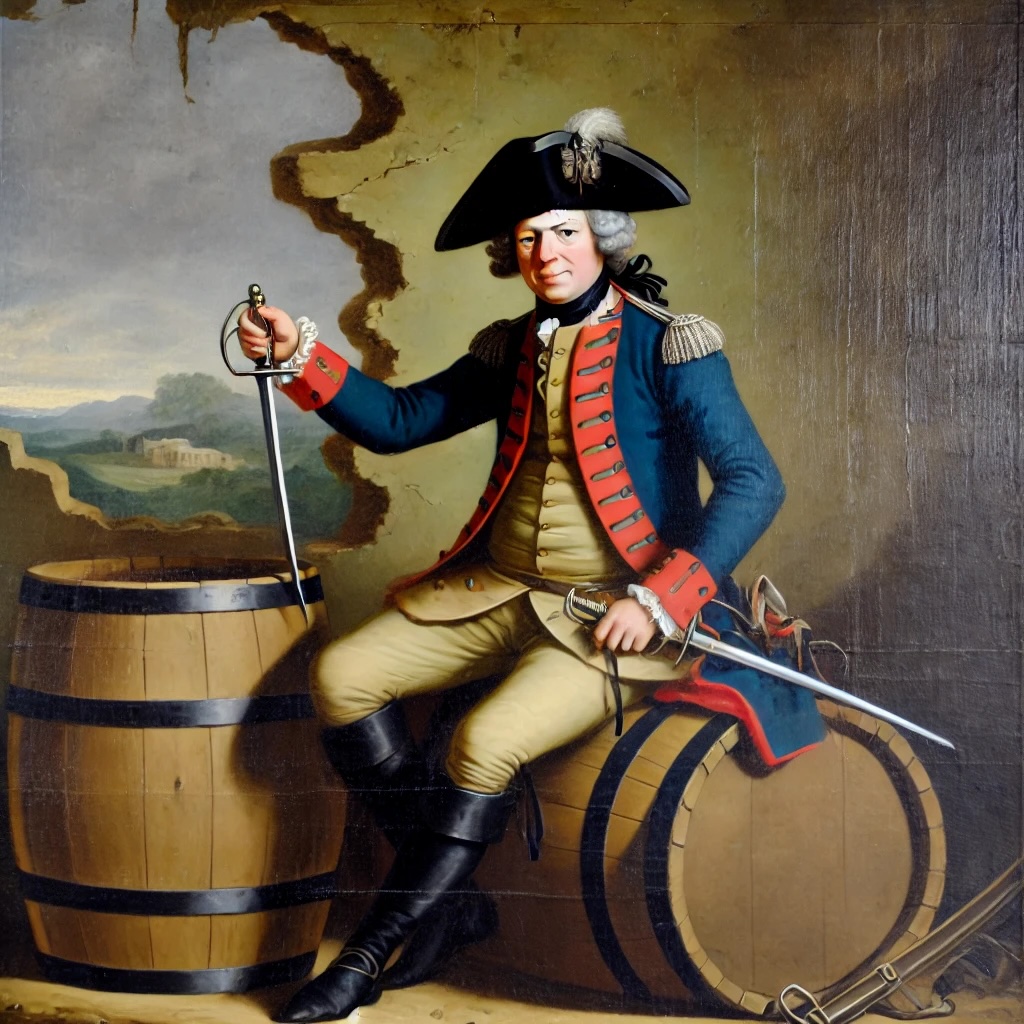
Frederick was King of Prussia, but possessed a number of unusual skills for a monarch. He was deeply involved in study, particularly French literature, music and philosophy (Voltaire was well-acquainted with Frederick and corresponded with him). A talented flutist, Frederick also composed. He was, however, also regarded as a capable military talent (Prussia's army included over 200,000 soldiers during Frederick's time) and was fiscally prudent, able to carry out his many military campaigns/wars without incurring debt. Over the decades of his reign, Frederick acquired additional territories that served to double Prussia's area. Though Frederick's writings indicate a highly cultivated and enlightened figure, he was not particularly liberal with his people, although not unjust; Prussia, it was said, was governed as a large army camp with little personal liberty (although a relatively free press.) .
Frederick II of Prussia, commonly known as Frederick the Great, was a monarch who defied the conventional image of a king. His reign from 1740 to 1786 was marked not only by military conquests and territorial expansion but also by his deep engagement with the arts, philosophy, and governance. Frederick was an enlightened despot, a ruler who combined absolute power with a commitment to intellectual and cultural pursuits, making him one of the most remarkable figures of 18th-century Europe.
Frederick was born into the House of Hohenzollern and ascended to the throne of Prussia in 1740. From an early age, he showed an unusual affinity for the arts, particularly French literature and philosophy. He was an avid reader and a prolific writer, often corresponding with leading intellectuals of his time, including the famous French philosopher Voltaire. Their relationship was complex; Voltaire lived at Frederick’s court for several years, and though their friendship was occasionally strained, it was marked by mutual respect and a shared love for intellectual discourse.
Music was another of Frederick’s passions. He was an accomplished flutist and composed music throughout his life, even amidst the turmoil of his military campaigns. His court in Potsdam became a cultural hub, attracting musicians, artists, and philosophers. Frederick’s musical compositions, though not as widely known as those of his contemporaries like Johann Sebastian Bach, contributed to the cultural richness of his reign and reflected his deep personal involvement in the arts.
Despite his cultural and intellectual pursuits, Frederick was, first and foremost, a military strategist. He inherited a well-trained army from his father, Frederick William I, and expanded it into a formidable force, boasting over 200,000 soldiers at its peak. His military acumen was demonstrated in the numerous wars he fought, including the War of Austrian Succession and the Seven Years’ War, where he successfully defended Prussia’s interests against much larger European powers. Remarkably, Frederick managed to finance these extensive military campaigns without plunging his kingdom into debt, showcasing his fiscal prudence.
Frederick’s reign was also characterized by territorial expansion. Through a series of strategic wars and diplomatic maneuvers, he acquired significant lands, doubling Prussia’s size. These acquisitions not only increased Prussia’s wealth and influence but also laid the groundwork for the eventual unification of Germany in the 19th century. His military and territorial successes earned him the moniker “Frederick the Great,” a title that has endured through history.
However, Frederick’s enlightened views did not extend to his governance style. While he admired the ideas of the Enlightenment and portrayed himself as a “philosopher-king,” his rule was authoritarian. Prussia under Frederick was often described as being governed like a large military camp, with strict discipline and limited personal liberties for its citizens. Despite this, he allowed a relatively free press, an unusual concession for an absolute monarch, reflecting his complex character.
In conclusion, Frederick the Great was a ruler of contrasts—an intellectual deeply engaged in the arts and philosophy, yet a rigorous military leader who expanded his kingdom’s power. His reign left a lasting legacy on Prussia, setting the stage for its rise as a major European power.
 >
>